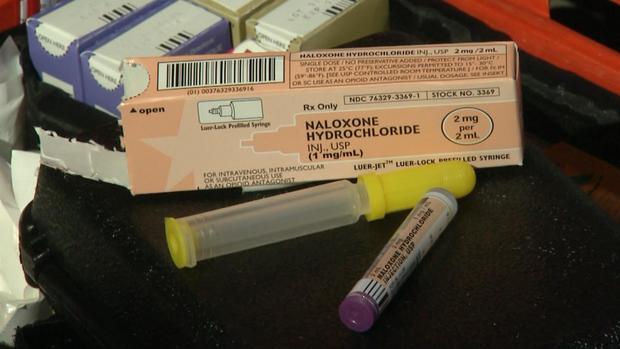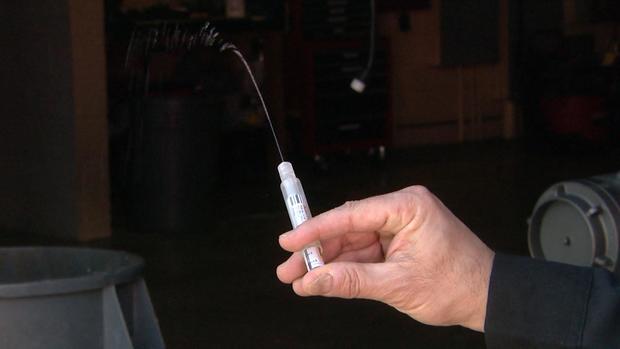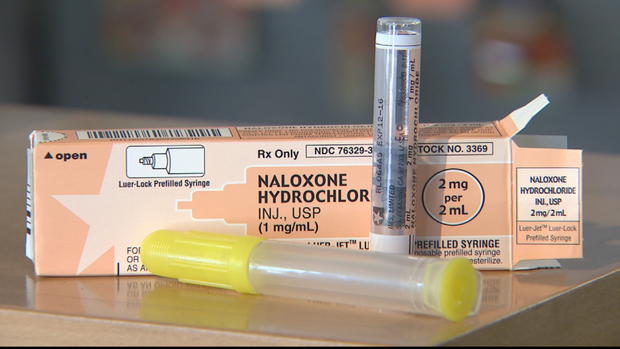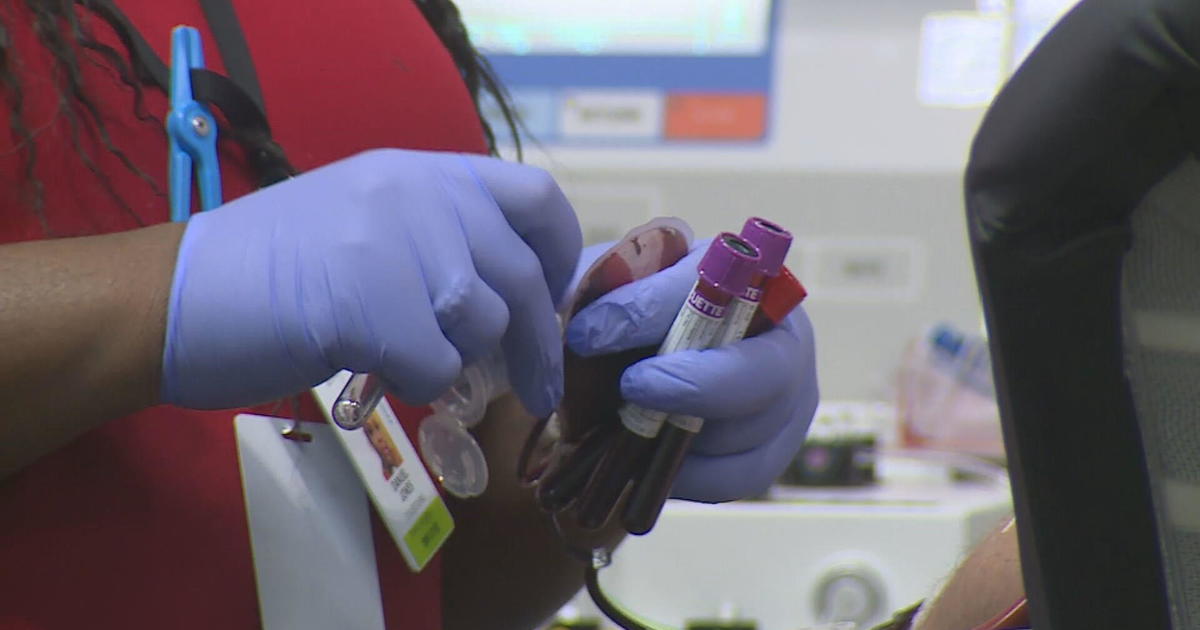Heroin Overdose Antidote Offers Hope For Vulnerable Inmates
DENVER (AP) - When he was a teenager, Lee Gonzales could not save his uncle from a heroin overdose. Now he worries that the same drug could kill him after he gets out of jail.
As Gonzales remembers, he had rousted his uncle from previous heroin stupors by propping him up and splashing water on his face. But there was no one around to help that day. And there was nothing available like the bright orange prescription bottle the 32-year-old heroin addict held in his hand on a recent morning.
"This is enough medicine to save somebody, huh?" Gonzales said, fiddling with the nasal inhaler as a doctor sat with him in a cinderblock interview room in Denver's downtown jail.
Similar scenes are unfolding in a growing number of jails and prisons across the country as health officials train soon-to-be-released inmates to use the overdose-reversal drug naloxone to save others and sometimes themselves.
Dr. Joshua Blum teaches inmates about the nasal spray, which can undo the effects of an opiate overdose almost instantly. Blum told Gonzales, who was jailed on theft warrants, he could take the antidote with him when he is freed.
"I think it's a great idea," Gonzales said.
Naloxone, also known by the brand name Narcan, has become a key tool in curbing overdoes resulting from the nation's opioid abuse epidemic. The class of drug that includes prescription painkillers and heroin was involved in a record 28,648 deaths in 2014, and opioid overdoses have more than quadrupled since 2000, according to the Centers for Disease Control and Prevention. Recently released inmates are particularly vulnerable.
Naloxone supporters say the opportunity to save potentially thousands of lives outweighs any fears that the promise of a nearby antidote would only encourage drug abuse. Officials already widely distribute the drug to police, paramedics, drug users and their families.
The push to equip inmates is new, fueled by research showing former prisoners in Washington state were nearly 13 times more likely to die of an overdose in the two weeks after their release than other people. Heroin tolerance goes down while users abstain behind bars, but they often return to their previous dose when they get out, putting them at greater risk.
"They're very anxious. They are released to environments where they have a lot of exposure to drugs. They are triggered to use, and they may not have support systems to help them," said Dr. Ingrid Binswanger, senior investigator for Kaiser Permanente Colorado's Institute for Health Research, who worked on the study.
Researchers also found that 8 percent of overdose deaths in Washington state were former prisoners.
Inmates set to be released from San Francisco's county jail have been offered naloxone kits since the program started there in March 2013. More than 1,700 inmates in six New York state prisons have been trained to use the antidote, and at least 600 have taken kits with them on their way out.
And in Colorado, several county jails began giving certain inmates rescue kits in January, funded in part by the state's recreational marijuana taxes.
It's hard to say what happens to the inmates given the drug after they're released, partly because reporting overdoses or reversals is voluntary.
A study of 100 Rhode Island inmates who received naloxone found they were able to successfully administer the drug after being released. A few used it to reverse their own overdoses, said Dr. Jody Rich, an epidemiologist and director of the Center for Prisoner Health and Human Rights. The research did not track what happened to the inmates over time.
"I wouldn't predict that it would stop people from using, and conversely it wouldn't encourage them to use," Rich said.
In New York, two former prisoners have come forward to report three overdose reversals, said Sharon Stancliff, medical director of the Harm Reduction Coalition, which runs the training. One of those former inmates now helps train other prisoners to use naloxone.
The King County jail in Washington state has trained 221 inmates, 10 of whom reported lifesaving reversals. Officials only learned of those successes when inmates returned to jail, public health spokesman James Apa said.
Blum, a doctor at Denver Health Medical Center, took inmates' phone numbers so doctors could reach out to each of them six months after their release. The Colorado program is too new to have yielded quantifiable results.
"We're telling this group of people that is highly stigmatized and not well-liked that they're good enough citizens that they might be able to go out and save a life," Stancliff said. "It's empowering."
Naloxone is not addictive and does not cause a high. Big pharmacy chains like Walgreens and CVS now sell the antidote, also available as an injection, over the counter. And the Obama administration in February proposed $90 million more in federal spending for programs that help states and local governments to, among other aims, improve access to naloxone.
Critics say it provides only temporary relief without combatting drug use. Maine Gov. Paul LePage, for example, has consistently opposed efforts to make the drug more accessible, saying that giving the antidote to family members of drug users would discourage people from seeking treatment.
Blum acknowledged that naloxone isn't a cure. But overdose reversals can offer a chance to seek more comprehensive treatment, he said.
"Dead addicts don't recover," Blum said.
Gonzales agreed to let his cellmates know about the drug and pledged to give it to friends and family when he gets out. And he recalled his own efforts to revive his uncle.
"I wish I had that at the time when that all happened," he said. "I sure wish I did."
- By SADIE GURMAN, AP Writer
(© Copyright 2016 The Associated Press. All Rights Reserved. This material may not be published, broadcast, rewritten or redistributed.)






